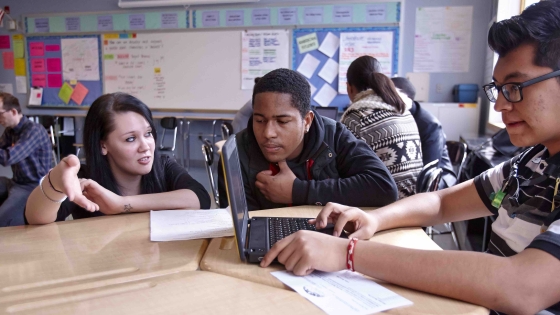
What Does “Data In Use” Mean?
Recent years have seen a tremendous growth in data-driven initiatives aimed at improving schools, including instructional techniques and accountability systems that rely heavily on using and interpreting data. While a wide body of literature now exists with advice and instruction about how educators should use data to inform their teaching, descriptions of how they actually do so are rare. This project aims to correct that tendency by examining teachers’ use of data to inform instruction in a set of NYC schools. By observing and documenting authentic use of data in action, we aim to illuminate a complex process in ways that will inform policymakers, researchers, and educators.
About Our Study
The study investigates the data use and work contexts of 4th and 7th-grade New York City literacy teachers in eight schools. The schools serve low-income students, and have also demonstrated high use of NYC’s Achievement Reporting and Innovation System. In recent years, half of the schools have shown better than average growth in students’ test scores (from 3rd to 4th grade, and 6th to 7th), while the other half are typical or below average.
Our study will focus on the following questions:
- How do schools’ organizational routines (planning sessions, grade-level team meetings, etc.) relate to teachers’ use of data for instruction?
- What explicit or implicit role does data use play in educators’ instructional routines (text-based discussion, writing workshops, etc.)?
- What are teachers’ beliefs about using data for instruction? What types of performance data seems most useful to teachers? What features of the school environment help or hinder data use?
In the 2014-2015 school year, we are conducting classroom observations, interviews, and focus groups with teachers in our sample of schools.
Supported by the Spencer Foundation.


